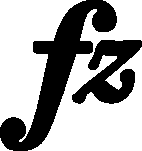



|
b. 15-17
|
composition: Op. 25 No 9, Etude in G♭ major
..
The category imprint: Interpretations within context; Differences between sources issues: Scope of dynamic hairpins , GE revisions , Inaccuracies in GC |
||||||||||
|
b. 17-18
|
composition: Op. 25 No 9, Etude in G♭ major
category imprint: Differences between sources |
||||||||||
|
b. 25
|
composition: Op. 25 No 9, Etude in G♭ major
..
It seems to be highly unlikely that Chopin consciously resigned from the marcato indication in GC (→GE). Its absence can be explained either by its oversight by the copyist or its later addition by Chopin in the base text to FE and EE (perhaps as a new idea after resignation from accents whose deletion in bars 25-29 is visible in GC). According to us, adding the accents as an equivalent of marcato and complete resignation from suggesting distinctive accentuation seem to be much less likely. Taking into account the above possibilities, we give this indication in the main text, placed as in FE, as the placement of marcato in EE under the part of the L.H. may be an arbitrary decision of the engraver or copyist. category imprint: Differences between sources issues: Authentic corrections in GC |
||||||||||
|
b. 25-44
|
composition: Op. 25 No 9, Etude in G♭ major
..
category imprint: Differences between sources |
||||||||||
|
b. 32
|
composition: Op. 25 No 9, Etude in G♭ major
..
It is likely that by introducing the category imprint: Differences between sources; Corrections & alterations issues: Authentic corrections in GC |


 in
in 



 placed at the beginning of the new phrase is unable to be performed in a noticeable manner (cf. the Etude in A minor, No. 11, bar 16). Therefore, in the main text we end the sign still in bar 16, in accordance with
placed at the beginning of the new phrase is unable to be performed in a noticeable manner (cf. the Etude in A minor, No. 11, bar 16). Therefore, in the main text we end the sign still in bar 16, in accordance with 








 in
in 

 sign on the
sign on the